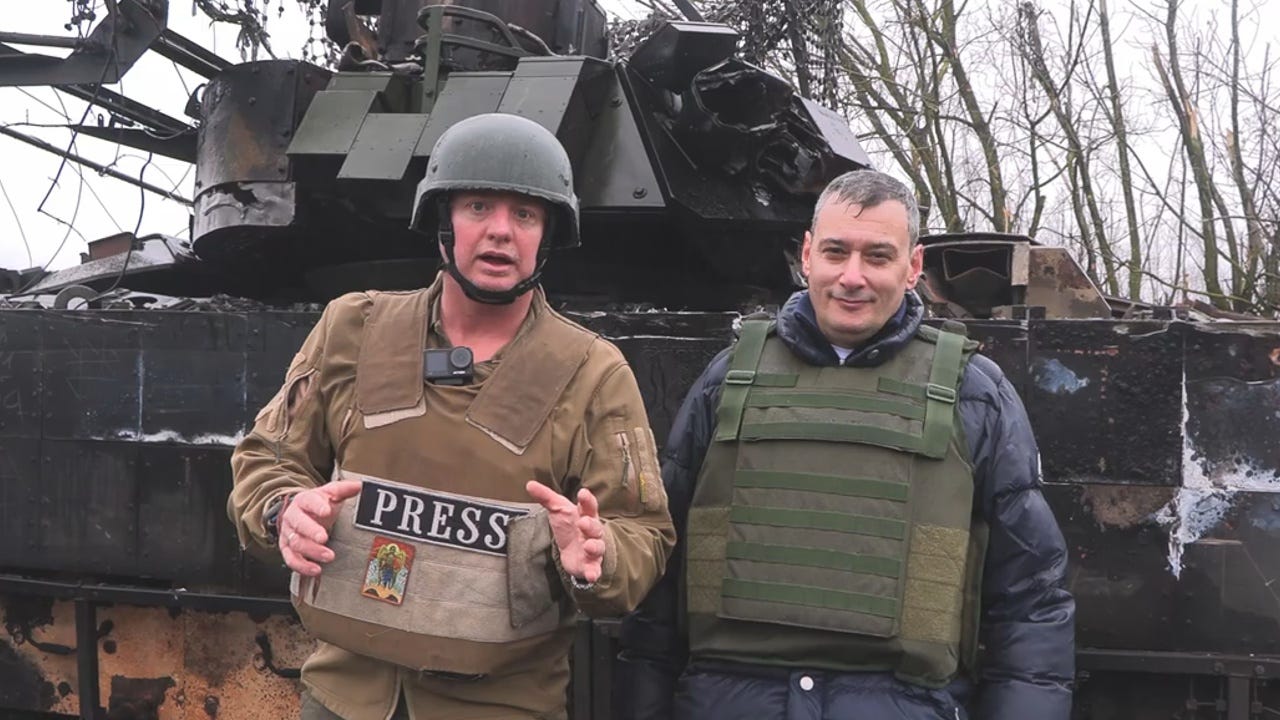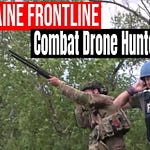Reporting from the Kursk-Sumy border region near Pogrebki village, I secured an exclusive and candid interview with Alexander Khinshtein, Acting Governor of Russia’s Kursk region. This frontline area has been heavily contested since August when Ukrainian forces crossed the border, controlling over 1,500 square kilometers, before being pushed back by Russian troops. Governor Khinshtein’s detailed account sheds light on the situation from the local government's perspective, highlighting the humanitarian and cultural consequences of this ongoing conflict.
The White Book of Destruction: Protecting Cultural Heritage
Governor Khinshtein revealed efforts underway to document and preserve the region’s damaged cultural heritage. This initiative, called the White Book, details historical landmarks impacted by military activities, with 48 significant sites identified thus far.
Among these damaged monuments is the ancient monastery at Gornal, dating back to the 17th-18th century, which faced direct tank fire from Ukrainian forces. Khinshtein expressed deep concern for its preservation, noting that the site's strategic position on high ground has made it vulnerable to fierce combat.
Khinshtein characterized the intentional destruction of heritage sites—such as Sudzha's 19th-century Local Lore Museum—as acts of "barbarism and wildness," arguing these attacks constitute direct assaults on global cultural heritage. He confirmed a commitment to restoring these sites, aided by aerial reconnaissance and national preservation bodies, emphasizing that historical monuments serve as crucial connections to the past for future generations.
Humanitarian Crisis: Civilian Suffering and War Crimes
Addressing the human cost, Khinshtein spoke somberly of civilian suffering. Official victim numbers are still pending, but he described the toll as "really high," including significant fatalities yet to be fully documented. Civilians evacuated from liberated areas frequently need urgent psychological and medical care.
The Governor drew parallels between current events and atrocities committed by Nazi forces during World War II, mentioning instances where entire villages were annihilated, including infants. "History repeats itself," he observed, lamenting recent reports of executions, torture, and civilian abuse attributed to Ukrainian forces.
He confirmed another tragic consequence of occupation: civilians dying from lack of medical assistance. The elderly and chronically ill, left without medicines or basic care, have suffered disproportionately, their deaths indirectly attributed to wartime disruptions.
Battlefield Realities: Evidence of International Military Equipment
Highlighting the broader geopolitical context, the interview took place near a captured U.S.-made Bradley Fighting Vehicle—symbolizing American involvement through arms supplies. Khinshtein, pointing to this battlefield relic, underscored frustration at foreign military aid prolonging the conflict and causing local casualties. He expressed hope that changing sentiments in the United States might prevent future conflicts involving American weaponry on Russian soil.
He also mentioned exhibitions of foreign military vehicles in Ponyri, emphasizing their "infamous destiny" after capture. He strongly condemned the placement of mines by retreating Ukrainian forces, including in civilian spaces such as cemeteries, highlighting their grim intent to inflict post-retreat casualties.
Commitment to Transparency and Truth
Closing our interview, Governor Khinshtein praised independent journalism, emphasizing transparency: "We show you what we have here. We don't hide anything." Echoing my own commitment to truthful frontline reporting, Khinshtein underlined journalism’s critical role in "lighting up the dark room," exposing realities often obscured by geopolitical narratives.
This exclusive conversation with Alexander Khinshtein provides invaluable firsthand insight into the Kursk frontline, illuminating the severe cultural, humanitarian, and military ramifications of the ongoing conflict. Stay tuned for further reports from Pogrebki and beyond, as I continue my mission of independent, fact-based journalism from conflict zones.
Support Independent War Journalism (I CAN NOT DO IT WITHOUT YOU)
I’m completely independent. No networks. Just truth.
✔️ Subscribe to my Substack for full reports and behind-the-scenes stories:
🔗
✔️ Support my work with a ONE TIME donation — every bit helps me keep reporting from the front:
🔗SUPPORT MY JOURNALISM WITH A MONTHLY DONATION
WATCH FULL REPORT ON YOUTUBE:














Share this post